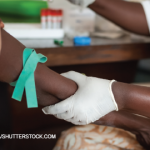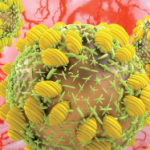Updates from the ACR Convergence 2023 Review Course, part 8
SAN DIEGO—The pre-conference Review Course at ACR Convergence 2023, held Saturday, Nov. 11, and moderated by Noelle Rolle, MBBS, assistant professor in the Division of Rheumatology, associate program director of the Rheumatology Fellowship at the Medical College of Georgia, Augusta University, and Julia Schwartzmann-Morris, MD, associate professor, Donald and Barbara Zucker School of Medicine at Hofstra/Northwell, Great Neck, N.Y., tackled numerous important topics in rheumatology. Here, we report on the presentation by Leonard Calabrese, DO, vice chair of the Cleveland Clinic’s Department of Rheumatic and Immunologic Diseases and director of the Cleveland Clinic’s RJ Fasenmyer Center for Clinical Immunology, Cleveland.
Dr. Calabrese spoke about the intersection of viral infections and rheumatic diseases. Viral infections are a common cause of acute arthritis and, in general, tend to be short lived and are not usually associated with significant articular inflammation. Due to the prevalence of various viral infections across the globe, any patient with signs of early inflammatory arthritis (i.e., symptoms that have not yet lasted six weeks) should be evaluated for a possible infectious etiology.

Dr. Calabrese
Parvovirus B19 infection in children commonly results in a slapped cheek rash, and a minority of pediatric patients have joint swelling. In adults, Parvovirus B19 infection may not cause a rash, or the rash can be atypical, and these patients commonly experience arthritis, which is more often polyarticular rather than migratory. The synovitis associated with this infection is minimal and is typically transient, lasting one to two weeks. Patients with this infection can also experience other manifestations, such as small vessel vasculitis and anemia, and patients can even generate autoantibodies seen in rheumatic conditions. Thus, in patients with an acute inflammatory arthritis, consider parvovirus B19 infection as a possible cause, even when autoantibodies are present.
Location Specific
Dr. Calabrese noted that, in individuals with arthritis after returning from travel (especially to foreign or exotic locations), the rheumatologist must consider the possibility of various bacterial, parasitic or viral infections. Included in this evaluation should be pathogens that can cause sexually transmitted infections. The assessment for specific pathogens should be based on geographic areas of travel and the epidemiology of certain organisms in those areas.
Chikungunya virus is of particular interest because nearly all patients will be symptomatic after infection, with symptoms that can include fever, myalgias and intense arthralgias. The condition is self-limiting in most patients, but a second phase of the illness can sometimes occur and last for several months.

